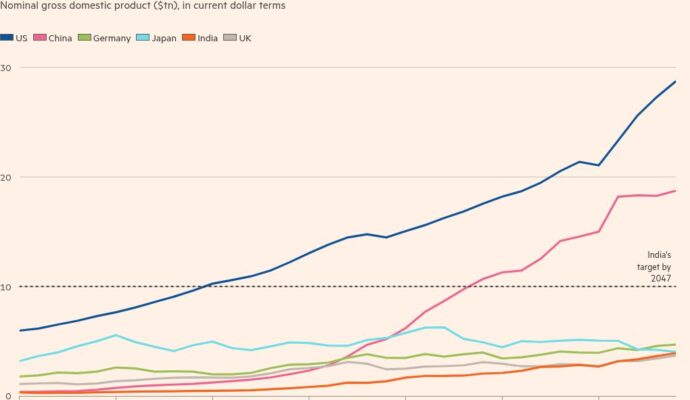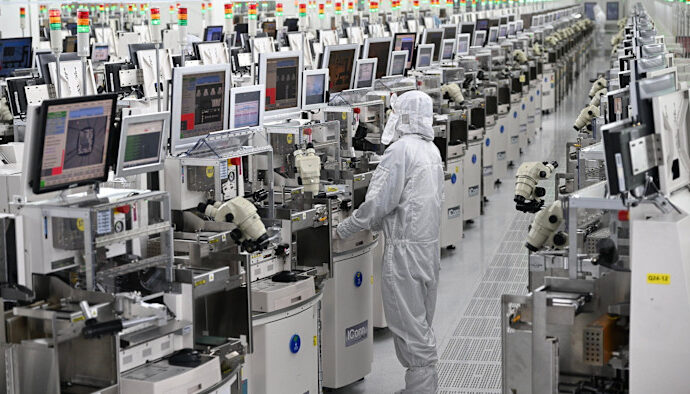Unlock the Editor’s Digest for free
Roula Khalaf, Editor of the FT, selects her favourite stories in this weekly newsletter.
One of India’s most powerful regional leaders is leveraging his status as a vital supporter of Prime Minister Narendra Modi to develop a quantum computing hub in Andhra Pradesh that he says will rival India’s biggest tech centres.
N Chandrababu Naidu, the chief minister of the southern state, said the “Quantum Valley”, as he called it, would be “even better” than the tech cluster he is credited with creating in Hyderabad in the 1990s.
“Quantum Valley is the next step,” Naidu told the Financial Times in his first interview with foreign media since his party helped Modi secure a third term in office last year. “This is the city I wanted to build.”
Naidu’s influence has soared since the elections, when his Telugu Desam party won back control of Andhra Pradesh, as well as 16 seats in the national parliament in New Delhi that have proven pivotal for Modi after his Bharatiya Janata party lost its outright majority.
That has catapulted Naidu’s faction to a position of national prominence, and won New Delhi’s support for his bid to transform Andhra Pradesh from a relative industrial backwater into a high-tech hub.
As part of that effort, the central government has facilitated financing from the World Bank and Asian Development Bank for the construction of a new state capital at Amaravati, a pet project of Naidu’s.
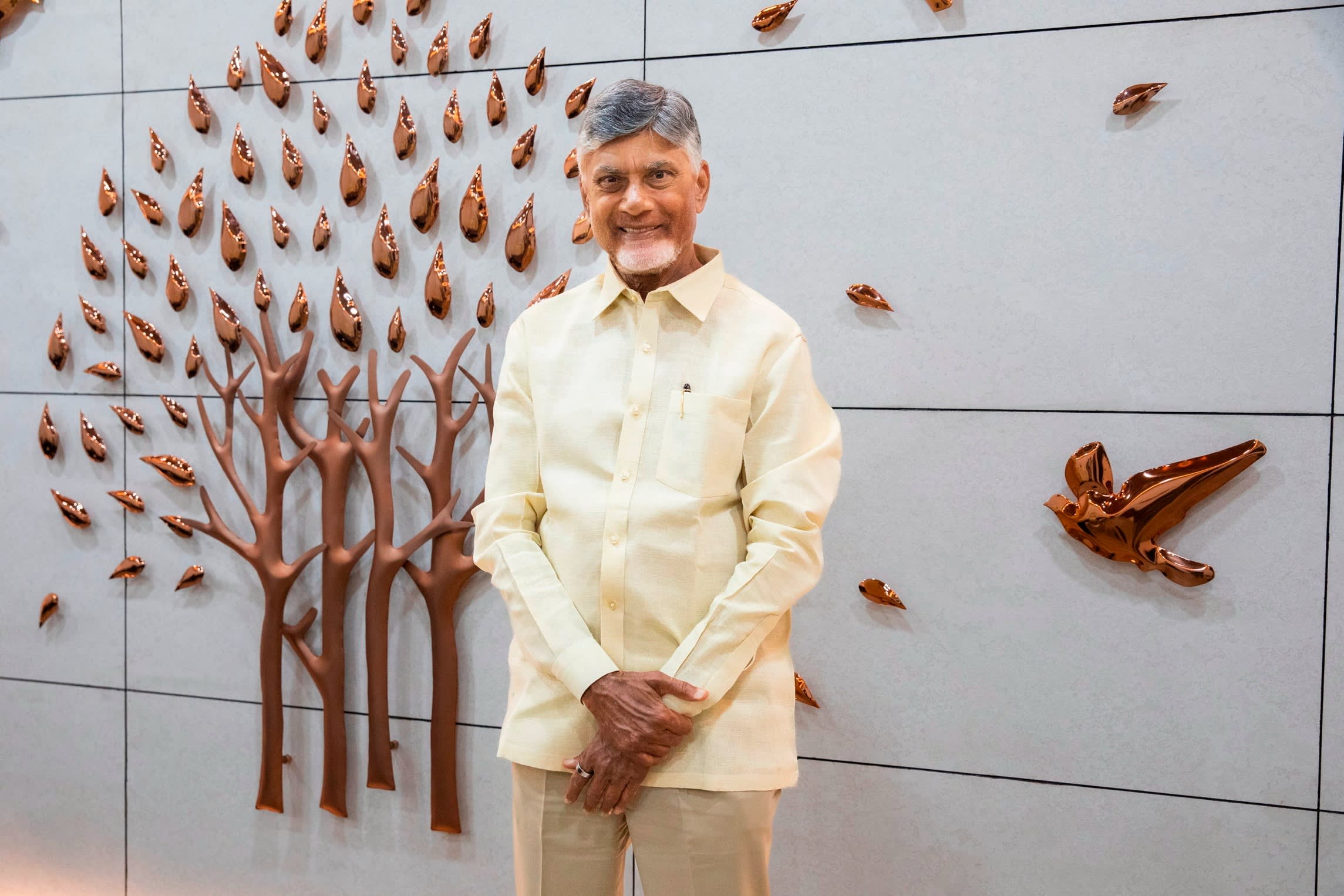
Naidu is seeking to build a tech park where developers and scientists can harness the nascent power of quantum computing for applications ranging from research to energy optimisation and manufacturing.
“Indians are very strong in mathematics and very strong in English,” he said. “These two are a deadly combination for information technology.”
IBM, India’s Tata Consultancy Services and Larsen & Toubro are anchor investors for the Quantum Valley, where the US tech group is in discussions to build what it hopes would be India’s most powerful quantum computer.
The companies have not said how much they will invest in the project. But Scott Crowder, IBM’s vice-president for quantum adoption, described it as “pretty solid”, adding that the US company planned to provide computing power while L&T would build the infrastructure and TCS would find users.
The government of Andhra Pradesh in December also signed a memorandum of understanding with Google to set up an artificial intelligence data centre in Visakhapatnam, known as Vizag. Google says the project is in its early stages.
During Naidu’s previous stint as state leader, he is credited with luring Bill Gates in 1998 to set up Microsoft’s first foreign research and development centre outside the US in Hyderabad, then the capital of Andhra Pradesh, putting it on the global IT map.
Naidu recalled telling the Microsoft founder: “Hyderabad is the future”.
Today, the US tech company employs thousands of people in Hyderabad. Other foreign investors in the city — nicknamed Cyberabad — include Apple, which develops its mapping functions there.
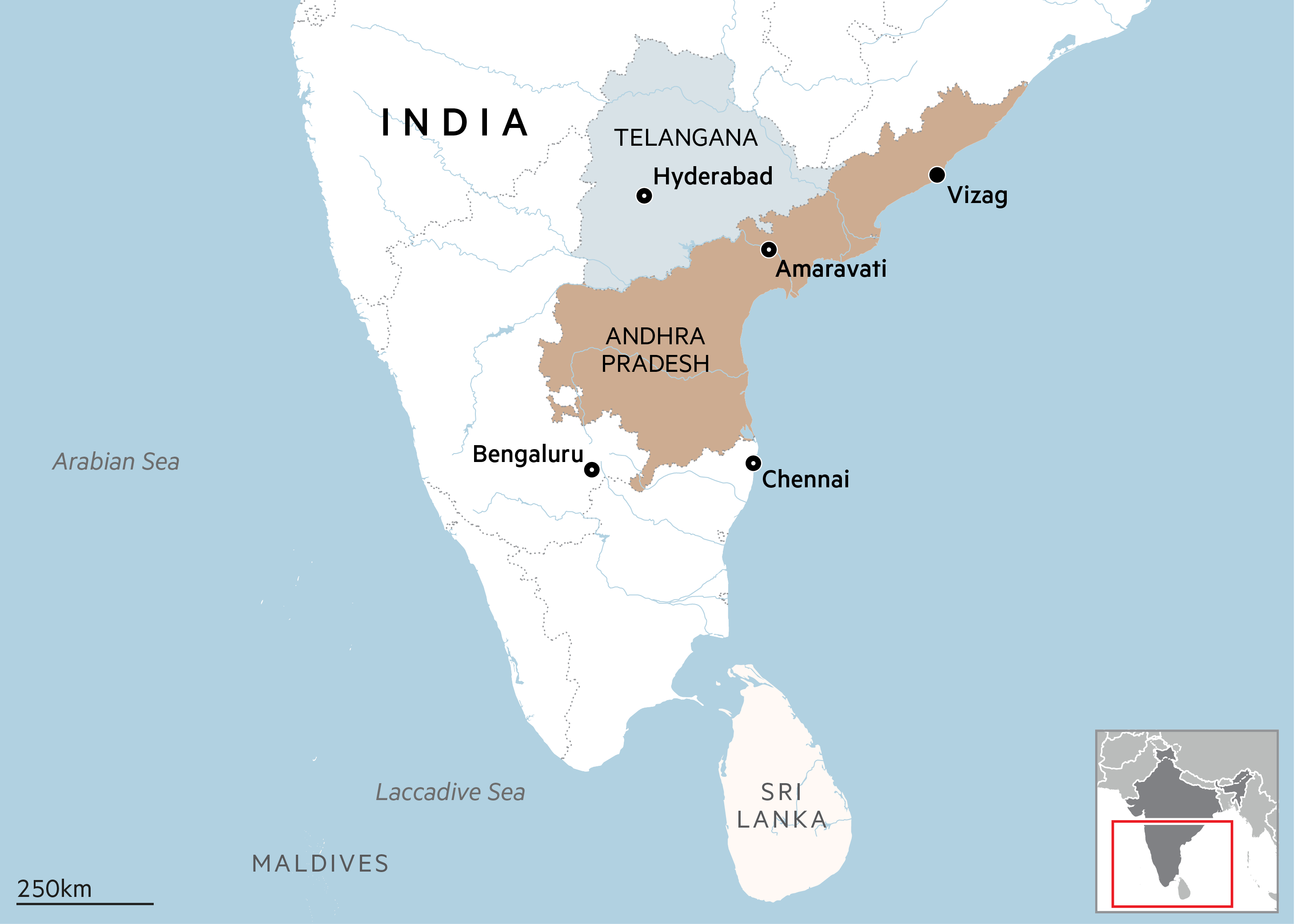
Although Andhra Pradesh ranks alongside Telangana — the new state where Hyderabad was redistricted when New Delhi redrew regional borders in 2014 — as a top source of India’s overseas tech workers, it has struggled to attract foreign investment.
Naidu has harboured ambitions of reproducing his success in Hyderabad by building a new, tech-heavy capital for Andhra Pradesh for years. But he was stymied in 2019, when he lost power and his successor halted work on Amaravati. He was briefly jailed for alleged corruption in 2023 in connection with the project and others. Naidu has denied wrongdoing, but the cases are ongoing.
But observers described the 75-year-old Naidu, who was first elected as a state legislator in 1978, as a consummate political survivor. “He is a marathon runner,” said Ramesh Kandula, a Hyderabad-based journalist and political analyst.
He has also had fickle relations with Modi and the BJP, even by the standards of Indian domestic politics, where officials often switch sides to secure favour.
In the 1990s, the TDP supported the first-ever BJP government of Atal Bihari Vajpayee from the outside, earning Naidu the moniker of “kingmaker”.
Naidu backed Modi during his first successful bid for national power in 2014 but opposed his re-election in 2019, denouncing the prime minister, a Hindu nationalist, as a “hardcore terrorist” who targeted minorities.
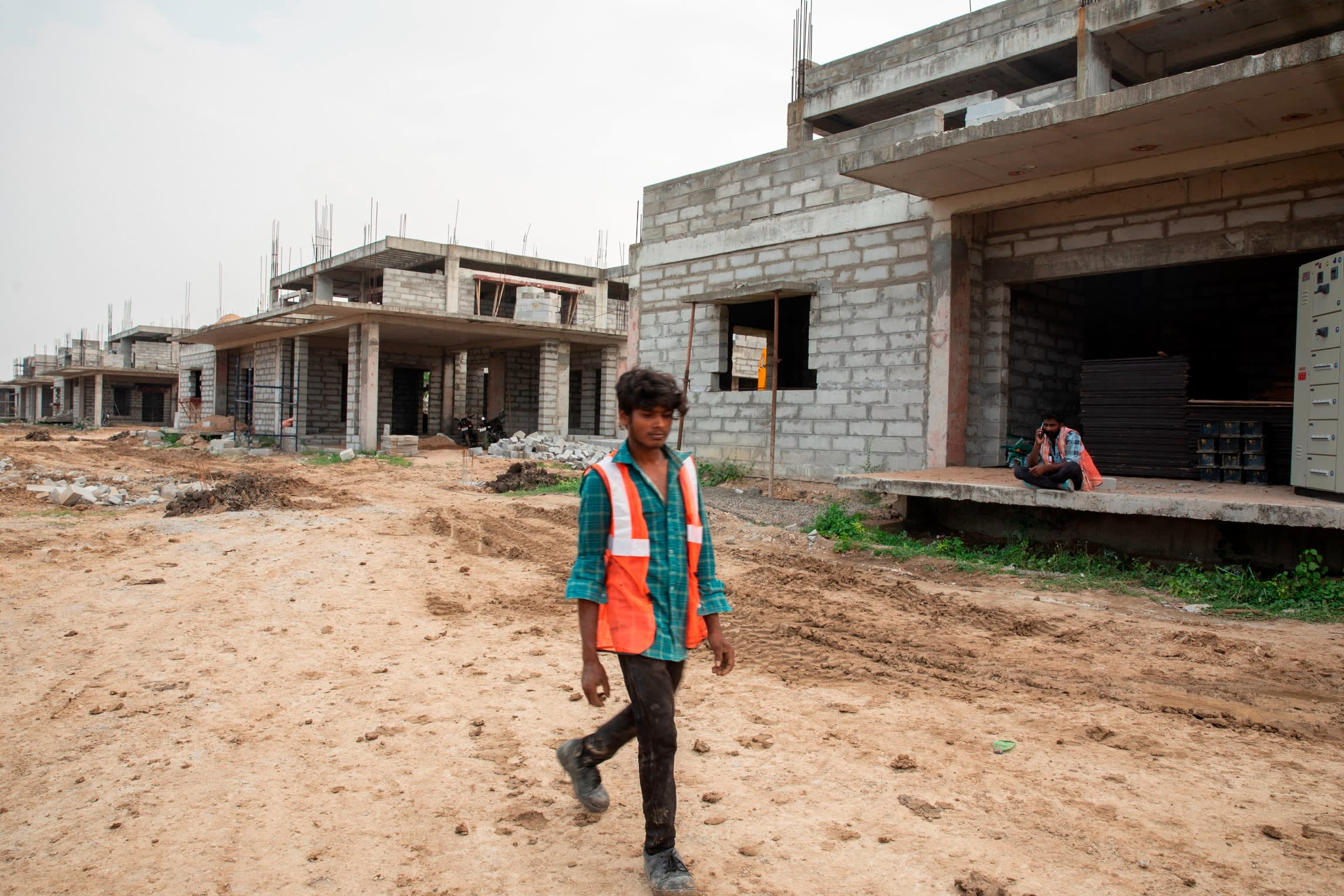
Notwithstanding that criticism, Naidu and Modi have achieved a meeting of the minds, his associates said, as the BJP has sought to strengthen its relatively weak base in the south.
“Since Naidu won the election with a thumping majority, he has been praising Modi to the skies,” added Kandula. “It’s actually embarrassing sometimes.”
Naidu insisted the BJP-led alliance would win India’s next election in 2029 and predicted Modi, who turns 75 this year, would run again. “He’s a good leader, the right leader for the nation,” he said.
